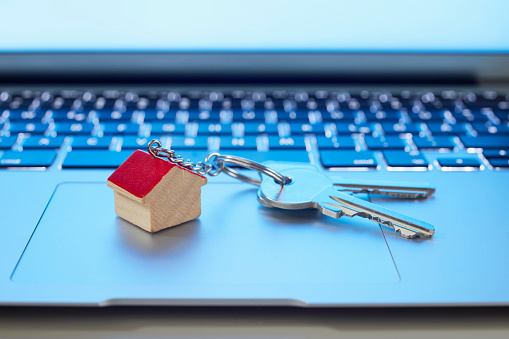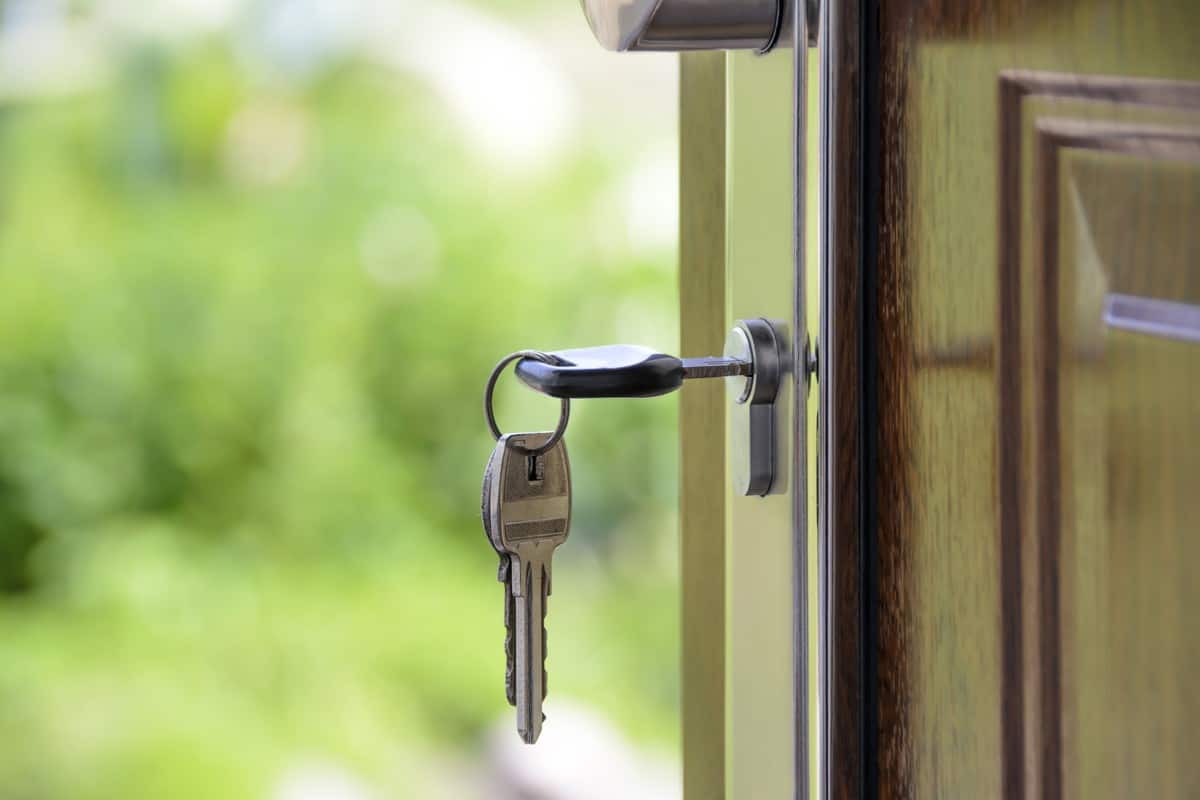Making the leap into homeownership is fraught with big decisions and scary possibilities. Understanding everything that goes into getting a mortgage is like having to learn a new language.
You want to make sound decisions, after taking this financial leap is a big one. You might think finding the perfect house will be the most challenging step in entering in homeownership. You might also think actually saving enough money will be a big challenge.
But understanding the intricacies of a mortgage, how to apply, getting approval, and closing costs, are plenty challenging too.
One factor that should be a prime consideration in the home buying process is what interest rate you can get for your mortgage. Once you have a budget and a home loan amount, the mortgage rate will determine your monthly payment amount.
Read on to learn about mortgage rates and when and if you should lock in your interest rate.
What is a Mortgage Rate Lock?
A mortgage rate lock is an agreement coming from your mortgage lender that they agree to lock in a certain rate for you on your mortgage application. It usually locks in your rate through the whole mortgage process from application to a specified period of time.
The mortgage lock means you have been secured the rate in the agreement. This means that if interest rates were to go up, your rate would not. Unfortunately, it can also mean your interest rate would not go down if rates were to drop. You can talk to your lender about a float down, more on that later.
In your mortgage lock you will have:
- An effective date, when your agreement expires
- An interest rate
- A specific mortgage program, like a 30-year fixed loan or a 5/1 ARM
- The cost of your rate (more on that later too)
There a few reasons why a rate lock might be voided. These reasons include property appraisal, your credit score, income or employment changes. If there is a revision to the conditions of the loan, for example going from a fixed rate to an adjustable rate, the rate lock can be canceled.
When Should You Lock In Your Rate?
There is no right answer to this question. If you find a rate you are comfortable with and it gets you the mortgage payment in your price range, it might be a good idea to decide to lock in the interest rate.
The truth is the market goes up and down, it fluctuates. In today’s uncertain times, the stock market has been in for a wild ride. Likewise, interest rates fluctuate too.
You could decide to gamble and hope for a better rate. It could also backfire on you and the rates could climb.
Talk to your loan officer and real estate agent for advice. They are the experts and should be able to guide you. But mostly, if you are comfortable with the rate and the monthly payment and want to move the process home buying process along, you should lock the rate in.
How Long Does a Locked Rate Last?
The rate lock can be set up with any number of days in mind. They usually last for 30 to 60 days. But the lock period can be longer if you suspect it will take you longer to get to closing.
You want to be as certain as you can that you can get closed on your house within the period of time set up in the rate lock agreement.
It makes sense to ask your lender, what they anticipate how much time will be needed to get to closing. Some of this depends on how busy they are. It can also take longer if more people are making home purchases if the market is hot.
If your home inspection process doesn’t go as expected, that too can slow down getting to the closing.
What Happens If the Rate Goes Up Or Down?
There are really 3 scenarios to consider when you are making the decision to do a rate lock for a mortgage. Let’s take a look at these 3 possibilities.
Rate Stays Exactly the Same
Mortgage interest rates bobbled up and down all the time. Is there a chance you could lock in a rate and 45 days when you close, it is exactly the same? Sure, there’s a chance of that happening.
Then it might feel like you wasted the money spent (more on this later) to lock in the rate. But if a different option had happened, you could be worse off.
Rate Goes Up
If the rate goes up, then you know you made the right choice to lock in the rate when you did. This is, of course, the best-case scenario for doing a rate lock.
Rate Goes Down
Here is the worst-case scenario. You locked in a mortgage rate and then at closing could have landed a better rate. There are few options if this happens, but often it’s the gamble you take when you make the decision to secure a rate.
Options If the Rate Drops
If you do a rate lock and the mortgage interest rates drop, this is where it can cost you money. Your monthly mortgage payment over the life of the loan would be higher than it would need to be if you had not locked in the rate.
Since this scenario is what you don’t want to happen when you lock in a rate, let’s consider your options.
Float Down
If you are worried about the rate dropping or the rates are particularly volatile, you want to ask your mortgage loan officer about something called a float down. Not all lenders offer the option of a float down, so it is worth researching when you do mortgage lender research.
Basically, a float down option allows you to drop to a lower rate if a lower rate is available from when you locked in your rate. You can typically only do this one time during the duration of the rate lock agreement and for a fee.
The float down option is most commonly included for a mortgage on a new construction home or a rate lock agreement that spans a little longer period of time.
You also want to look closely at the terms. Sometimes, a mortgage lender will require the rate to drop by a certain amount before they will do the rate change. So, for example, maybe you lock your rate in at 3.5%, the lender might not be willing to do a float down unless the rate drops at least .25%.
Then you need to consider how much the float down option will cost, sometimes between .5% and 1%, of the value of the mortgage. Then it’s time to get out the calculator to figure if the option and additional fees are worth paying for on the chance rates go even lower.
It should be noted that not all lenders offer this option as part of the agreement. If you know this is important to you when you decide to lock in a rate, do you research on lenders before committing to a lender?
Cancel the Lock
The other option if your lender does not offer a float down option or they won’t do it because there isn’t a big enough rate drop, is to leave them. Break up with your lender, so to speak.
Now, this only works if you have enough time to reapply with other lenders and lock in that better rate. But if you have a good credit score, income, and employment history and it wasn’t difficult to qualify for this loan, it probably won’t be difficult to do it again with a second lender.
Any decision like this should be made with careful research and time considerations.
Cost
How much will the rate lock option cost? Some lenders offer it for free as part of the agreement. But, the cost is probably worked into the fees associated with the loan.
If there is a cost, do your research. Costs vary greatly from lender to lender. It also depends on the mortgage rate, the terms of the loan and the duration of the rate lock. All of these factors can attribute to the possible cost of the rate lock.
Locking In Your Mortgage Rate
You are probably trying to decide if committing to a rate lock is worth it. Ultimately, the goal is to find the best rate possible so you can have it for the life of the loan.
If you find a good mortgage rate and you believe you can get to closing before the rate expires, it makes sense to lock in the rate. Like all things connected to home buying and mortgage rates, do your research.



